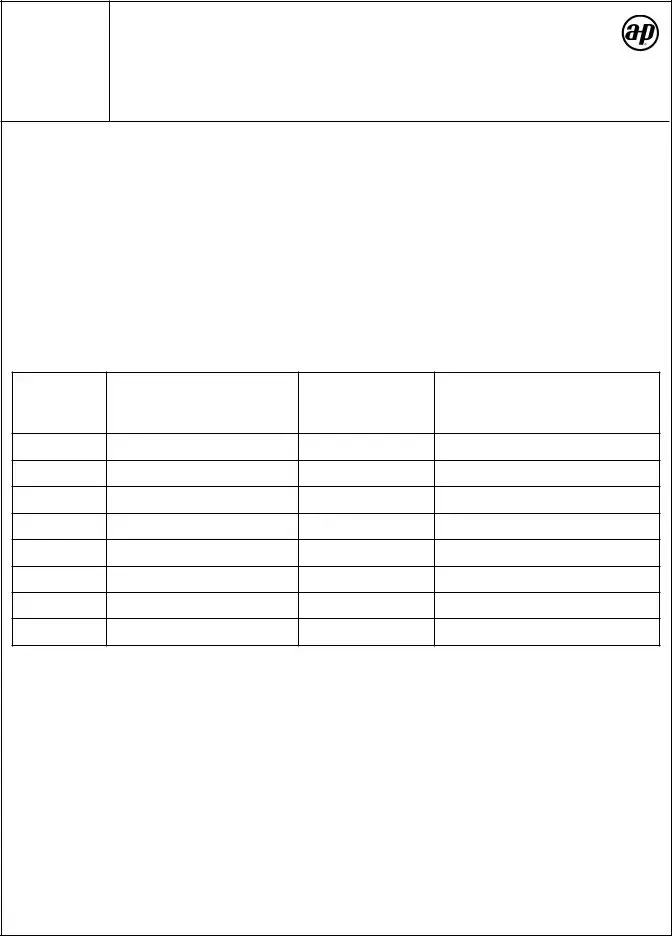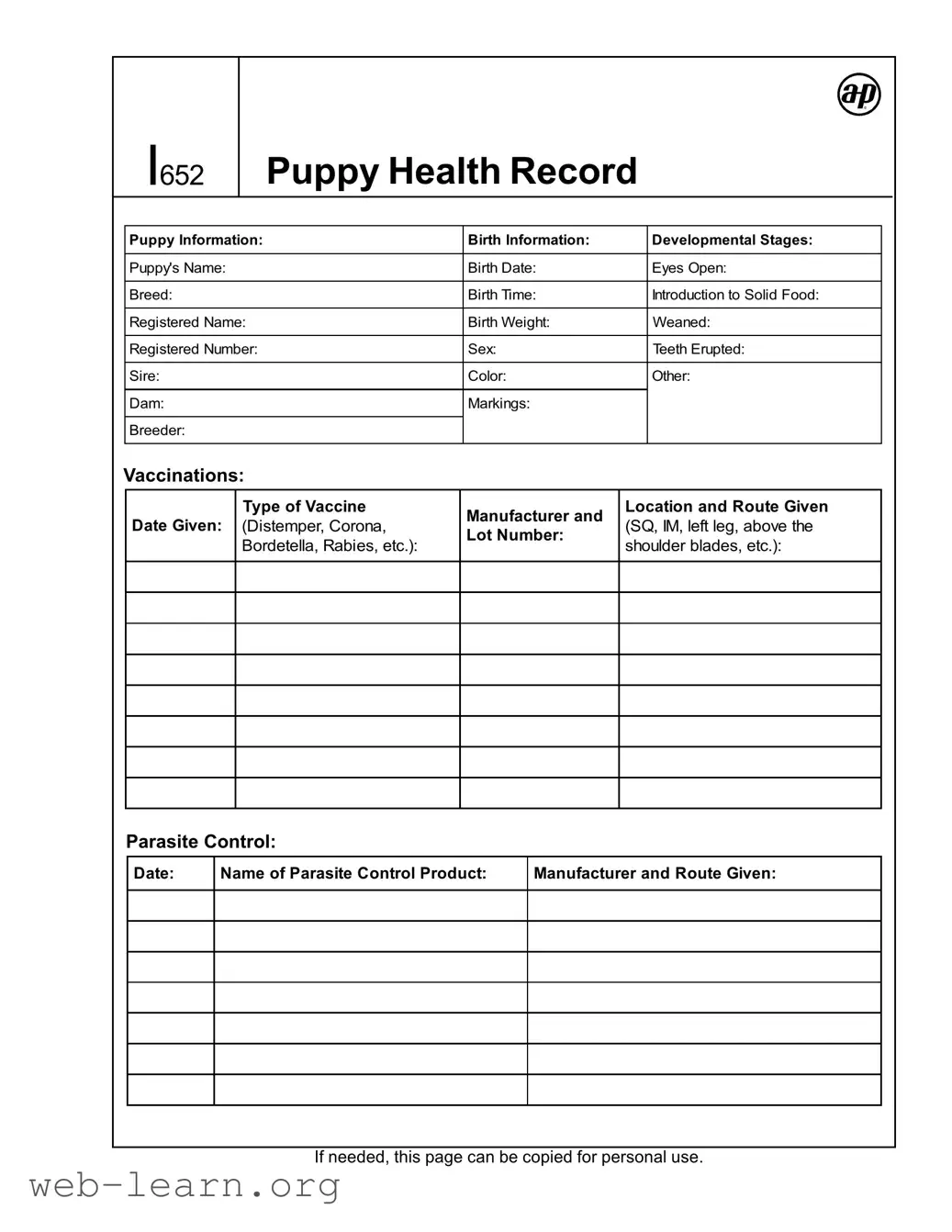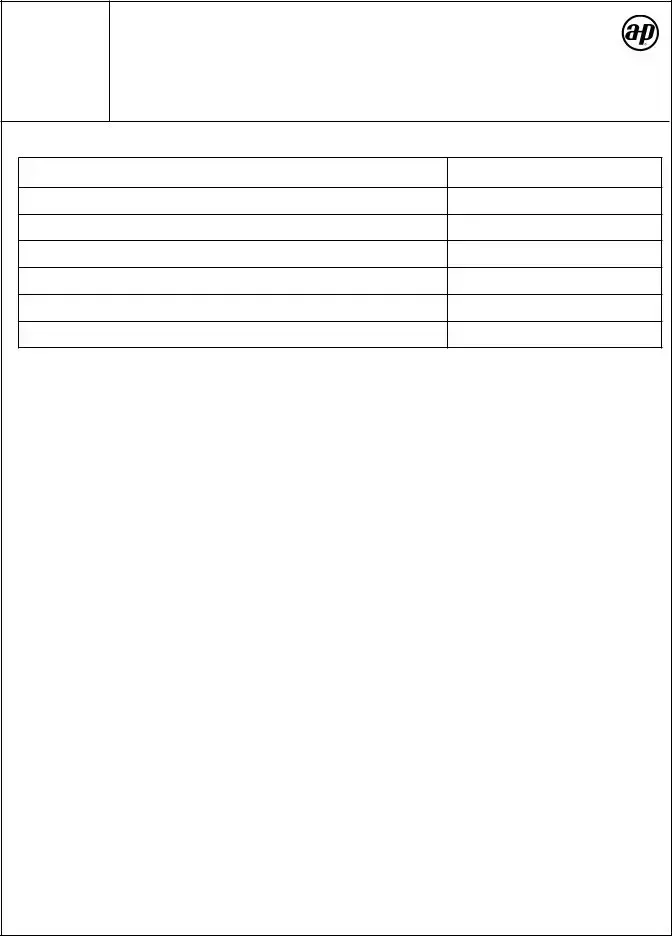
:etaD:stnemmoCdnasgnidniF :slaitinInairanireteVrorenwO
Examinations or Procedures Performed by Owner or Veterinarian:
stnevEegAetaD
etadhtriB
1yaD
kcodliatdnalavomerwalcweD
syad4-3
)etaomapletnaryp(gnimrow-eD
skeew2
mirtlianeoT
skeew2
noitcudortnidoofdiloS
skeew3
)etaomapletnaryp(gnimrow-eD
skeew4
mirtlianeoT
skeew5
pirtracts1
skeew6
tohsts1
-68 skeew
tevybnoitanimaxelacisyhP
skeew7-6
)etaomapletnaryp(gnimrow-eD
skeew6
gninaeW
skeew8-7
segacotevoM
skeew7
)etaomapletnaryp(gnimrow-eD
skeew8
mirtlianeoT
skeew9
tohSdn2
*
911-skeew
tohSdr3
2141-skeew
nigeB
h
mrowtrae
m
**noitacide
skeew21-6
***gnimrow-eD
skeew21
stohslanifdnaht4
-51skeew71
retuenroyapS
shtnom6-5
* Each vaccination should
ideally be given at three
week intervals.
** The time to begin heart-
worm medication can vary
depending on the product
and time of year.
*** The de-worming product
selected at this time can
vary depending on the type
of heartworm prevention
that is used. In general,
Drontal or Drontal Plus are
recommended.
See pages A622 and A905 for
parasite control and vaccination
suggestions.
Puppy Health Record Page 2
I652
Schedule of Events
from Birth to Spay or
Neuter
If needed, this page can be copied for personal use.


